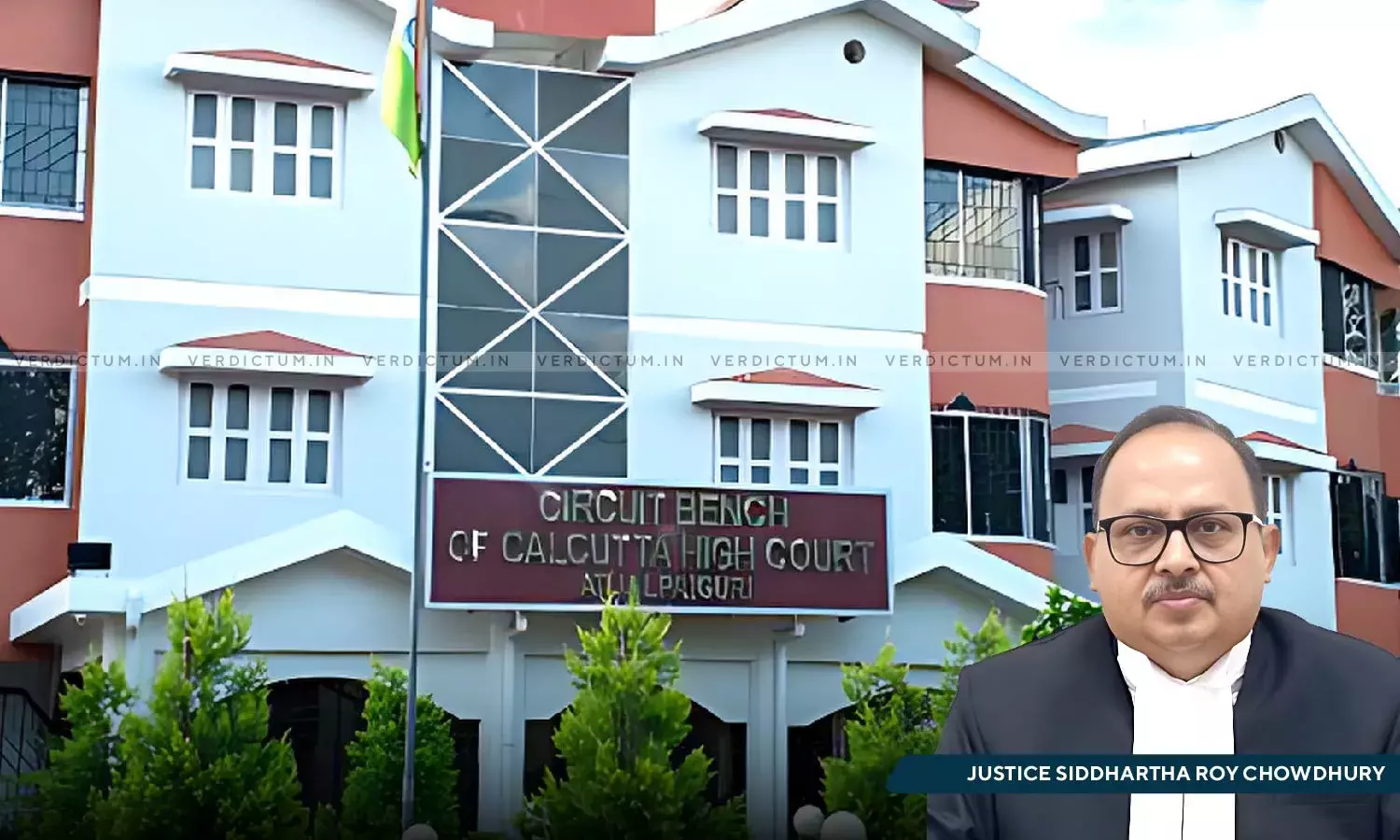Even If It Is Assumed That Victim Left Her House With Accused, It Does Not Give Right To Latter To Invade Her Privacy & Commit Rape: Calcutta HC

The Calcutta High Court, Jalpaiguri Bench, has observed that even if it is assumed that the victim left her house with the accused, it does not give the latter the right to invade her privacy and commit rape upon her.
Further, the Court affirmed the rape conviction of the Appellant although acquitted him of kidnapping charges under Section 365 of the Indian Penal Code (IPC).
Justice Siddhartha Roy Chowdhury observed, “If we, go by the maiden statement of the de facto complainant, and if it is assumed that the victim was not abducted or kidnapped she left her house with accused person on her own, that does not give the accused person the right to invade upon the privacy of the victim girl or to commit any penetrative sexual offence within the meaning of rape as defined under Section 375 of the Indian Penal Code. During her evidence in chief she stated that she refused to accompany the accused person to the house of his paternal aunt (pisi) and the accused person forcibly took her into a reserved vehicle at Sonapur Patkapara”.
Advocate Arnab Saha appeared for the Appellant, and Advocate Aditi Shankar Chakraborty appeared for the State
A Criminal Revision Appeal was filed by the Applicant, challenging the judgment and order of conviction of the Trial Court. The Court convicted the Appellant under Section 365 of the Indian Penal Code and sentenced him to three years of rigorous imprisonment and also sentenced to seven years of rigorous imprisonment for the offence punishable under Section 376 of the IPC. The FIR was based on the information provided by the father of the victim, claiming that the Appellant had kidnapped his daughter (a student of class VII).
The Court noted that the prosecution failed to prove the Victim's age, which is required under Section 361 of the IPC. The Court observed that the Victim's testimony proved that she was not abducted or kidnapped but left her house with the accused person on her own. However, the Court noted that this does not give the Appellant the right to invade her privacy or commit any penetrative sexual offence against her.
Furthermore, the Court noted that the Victim, in her examination-in-chief, stated that she refused to accompany the accused person to the house of his paternal aunt (pisi) and that he forcibly took her. The Court observed that the Victim stated that she raised an alarm while the accused person was raping her. The next morning, the house members asked her why she had raised the alarm, and she told them that the accused person had raped her.
The Court held that the Victim's testimony established that the accused person used force to have sexual intercourse with her against her will. The Victim has withstood the test of cross-examination, and the defence counsel's cross-examination has actually supported the prosecution's case.
“During hearing on the point of sentence the accused person stated that he was only the bread earner of the family and at that relevant point of time, the accused person was twenty six years old and he has been passing his days with agony and anxiety… Under such circumstances, I am of the view that the ends of justice would be met if the appellant / convict is sentenced to suffer imprisonment for four years instead of seven years for committing offence under Section 376 of the Indian Penal Code”, the Court noted.
Therefore, the Court noted that the conviction order of the Trial Court needs no interference. The Court observed that the Trial Court had not invoked the provisions of Section 360 or Section 361 of the Code of Criminal Procedure. Therefore, the Court directed the Trial Court to consider the matter afresh and pass appropriate orders. The Court held that the Appellant shall undergo four instead of seven years of imprisonment subject to provisions of Section 428 of CrPC.
Accordingly, the Court partly allowed the Appeal and directed the Appellant to surrender to the Trial Court till October 9 to serve the sentencing.
Cause Title: Hemanta Barman v. The State of West Bengal

